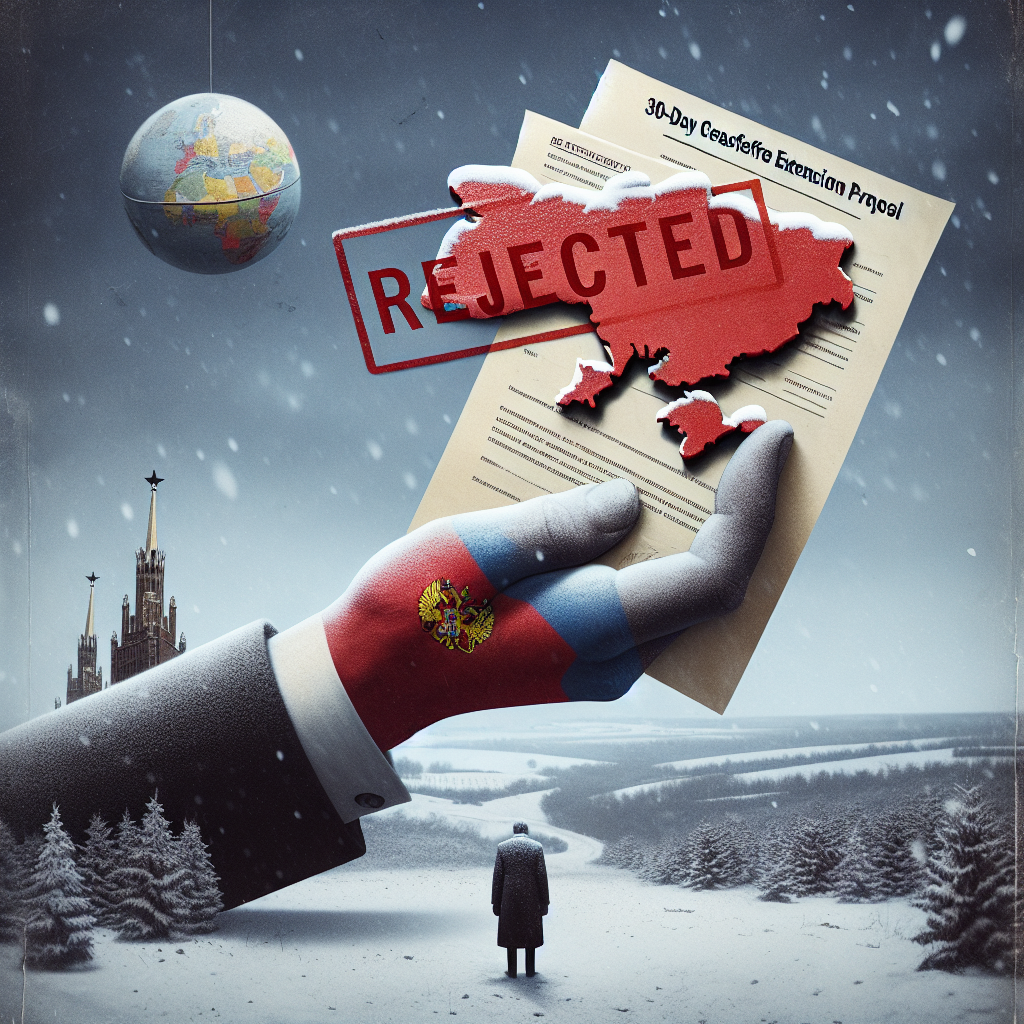Russia Rejects Ukraine’s 30-Day Ceasefire Extension Proposal
Russia Rejects Ukraine’s 30-Day Ceasefire Extension Proposal
Background
In a recent development, Russia has turned down Ukraine’s proposal to extend the current ceasefire by 30 days. This decision comes amidst ongoing tensions and sporadic clashes between the two nations, which have been in conflict since 2014.
Key Points of the Proposal
- Ukraine proposed a 30-day extension to the existing ceasefire agreement.
- The aim was to create a conducive environment for further peace talks.
- Ukraine emphasized the need for a humanitarian pause to aid civilians in conflict zones.
Russia’s Response
Russia’s rejection of the proposal was based on several factors:
- Claims that Ukraine has not adhered to previous ceasefire terms.
- Accusations of continued military build-up by Ukraine along the border.
- Russia’s insistence on addressing broader security concerns before any extension.
International Reactions
The international community has expressed mixed reactions to the development:
- Western nations have urged Russia to reconsider, emphasizing the importance of dialogue.
- Some countries have called for increased diplomatic efforts to resolve the conflict.
- Humanitarian organizations have highlighted the urgent need for a ceasefire to protect civilians.
Conclusion
The rejection of Ukraine’s ceasefire extension proposal by Russia underscores the complexities of the ongoing conflict. While Ukraine aimed to foster a peaceful environment for negotiations, Russia’s concerns over security and compliance issues have stalled progress. The international community continues to advocate for dialogue and humanitarian considerations, highlighting the need for a sustainable resolution to the conflict.






































